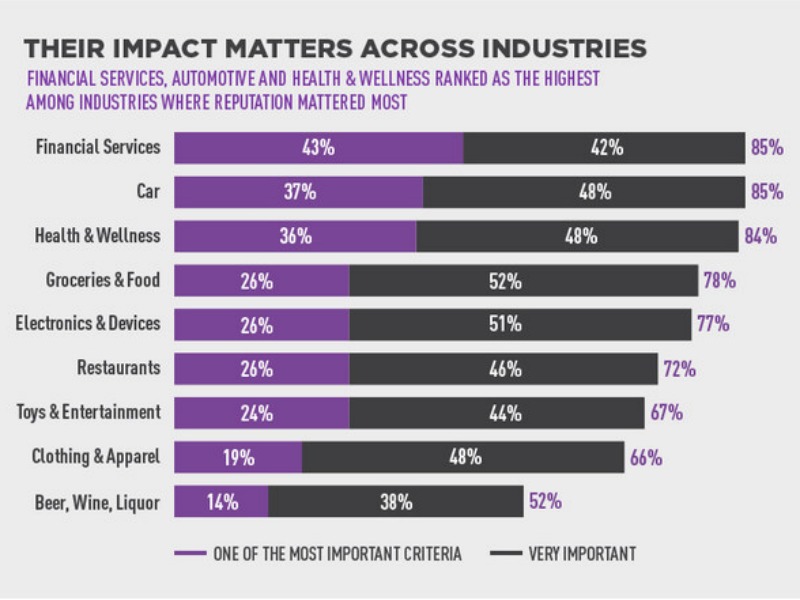Jade Eckardt 21 Jul 2017 // 1:58PM GMT

NEW YORK — Approximately 100m Americans decide what products to buy based on brand reputation, according to a new study commissioned by MWWPR and conducted by Wakefield Research.
The study dubbed this influential cohort of consumers 'CorpSumers,' which consists of one in three Americans, and is a larger target audience than Millenials, mothers and other consumer groups targeting by brands today.
Particularly, the reported found that the true value of the CorpSumer is their abilities to influence others, make changes and sway attitudes and markets. The report calls them "the influencer next door" because they are part advocate and part objector, with a strong ability to change the buying behaviors of friends and family.
In fact, CorpSumers feel so strongly about brand reputation, that over half (51%) will continue buying a product that has disappointed them because they believe in the company or share its values. Similar results were found in a recent study conducted by Golin in May.
"At MWWPR we have always believed that corporate reputation and consumer brand loyalty go hand in hand. This research does more than simply prove that theory, it demonstrates the profound significance of this segment to drive business," said Carreen Winters, MWWPR chair of reputation and chief strategy officer. "CorpSumers are market makers and market movers, they vote with their wallets, their investment portfolios and their careers. They love deeply and hate with vitality, and pride themselves on influencing others. companies that effectively harness the power of CorpSumers will outpace the competition in market share, brand loyalty, activism and amplification."
According to the report, consumers who advocate for brands spend two times more than average customers on favorite brands, accounting for $6t in annual spending. Furthermore, a loyal customer is worth up to 10 times the value of their first purchase, making CorpSumer's loyalty and activism a powerful combination to fuel brand growth. Winters calls the marriage of the two traits the "most valued attributes of any consumer."
Yet CorpSumers' commonalities span more than just activism. They cross the boundaries of both gender and generation, and are the ideal target for brands on income, education and family status. Particularly, they are more likely than the average American to be well educated, employed full time, and to be high income earners and parents. Basing purchases off of their brand knowledge makes them feel like positive change agents, and 53% say that companies have a stronger ability to make positive change in the world than government.
Other key findings include that over half (67%) of CorpSumers would rather pay full price for a product that supports a cause they believe in or reflects their personal values than buy a discounted product from a different brand. CorpSumers are vocal, as 89% are likely to share positive news about brands, while 78% are likely to share negative news. Additionally, 76% have encouraged peers to buy a product because they want them to support the brand that makes it, and 74% have encouraged a peer to give up or not use a product due to brand reputation. Company working conditions and equal employment opportunities are two high ranking issues for CorpSumers.
"Shared values are the currency of CorpSumer engagement, and it is never too late to engage the CorpSumer," said Winters. "This segment is continually evaluating companies and looking for the ones that best reflect their values and priorities. In fact, 63% of CorpSumers report switching brands because they want to support something another company is doing. CorpSumers over index their reliance on news media to formulate opinions, are active users of social media for brand activism, and rely on content to underscore their opinions, making public relations the ideal vehicle for engaging the CorpSumer. The key is knowing how to identify them, when, where and how to engage them and ultimately how to activate them on your behalf."



































.jpg)















